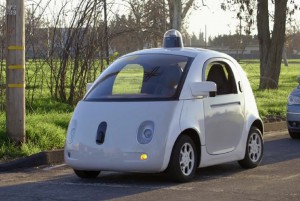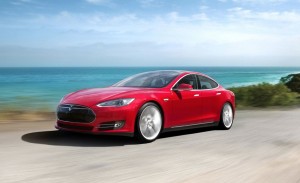
Google continues to expand its ongoing testing program for self-driving vehicles and its recognition as the leading autonomous vehicle company in the U.S.
As many as 73% of American drivers are willing to slide behind the wheel, or big red button, of an autonomous vehicle, according to a new survey by AlixPartners, marking a significant uptick in the level of acceptance of the self-drivers.
Not only are more U.S. motorists ready, they’re willing to pay for it. In fact, 80% of those surveyed said they’d pay more for one. In fact, 10% claimed they would shell out an additional $5,000 for a self-driving vehicle that they would use in all facets of their lives.
On the surface, this level of acceptance appears to be a striking shift in attitudes about level of trust drivers are willing to place in autonomous vehicles, despite the fact that 96% of drivers surveyed have no experience with these vehicles. However, Mark Wakefield, head of AlixPartners automotive practice, noted that difference was in the questions. He noted that as part of the process, the respondents were given specifics about autonomous vehicles and then asked questions about that information.
“No one’s experienced these vehicles yet,” said Mark Wakefield, managing director at AlixPartners Enterprise Improvement practice. “It’s difficult to imagine how these cars work and will work in the right way.”
In short, it’s not that American’s are necessarily against autonomous vehicles, as many previous studies have suggested, it’s that they’re in favor of a specific type of self-driver: one that will perform reliably and predictably on it’s own unless the owner wants to take over. That type of autonomous vehicle got a 90% buy-in in the study.
(Automakers enter “gray zone” as they roll out semi-autonomous technologies. For more, Click Here.)
“They want a car where ‘I can grab control at anytime,” Wakefield said. “That seems to be the sweet spot.”
However, there was a big information bombshell lurking in all the information: Google is the autonomous vehicle leader, according to John Q. Public. Wakefield noted that 42% of all respondents knew that Google had an autonomous vehicle. Tesla had the second-best result at 23%. He said that nine other automakers accounted for just 17% total. In fact, if you count every vehicle maker, they still fall short of the recognition that Google has.
“Google is clearly winning the war of public perception,” he noted, adding that Google’s advantage is reminiscent of the battle between PCs and operating systems in the 1990s. “The auto industry has to produce a vehicle that’s better than the high-tech industry’s car. Not as good as, better.”
Although keen to adapt new technology, Americans want to buy self-driving cars from traditional automakers rather than upstart tech firms from Silicon Valley. The survey showed that 27% preferred their vehicles come from a Detroit-based maker, while Japanese companies were just a shade behind at 25%.
Non-automotive tech companies were third at 24%, but the surprise was that European automakers were significantly behind those three groups at just 12%. Wakefield chalked up the poor result as a hangover from the Volkswagen scandal and some well-documented problems with German infotainment systems.
(Infiniti may add semi-autonomous technology to most new models. For more, Click Here.)
The study showed that respondents also felt that Detroit makers would produce the autonomous vehicle that was easiest to use and provided the best value with Japan’s automakers close behind on both counts.
However, there two significant areas where Silicon Valley clearly has America’s trust … or at least more so than automakers: programming and privacy. Motorists surveyed wanted the tech companies to do the programming of the software for the cars and felt they would be the most trustworthy when it came to handling any data collected from autonomous vehicles.
Wakefield notes that there is a level of comfort and familiarity with Google and other high-tech companies when it comes to sensitive information that automakers don’t engender.
Conventional wisdom holds that 2025 is when the U.S. will see an influx of self-drivers; however, AlixPartners contends that 2020 is the inflexion point when Level 5 drivers will begin to infiltrate the market in significant numbers.
(New study sees 21 million autonomous vehicles on the road by 2035. Click Here for the latest.)
During the course of the next five years, the level of vehicle autonomy and sales of vehicles with some form of the technology are going to rise steadily, the company predicts. AlixPartners suggests the market for autonomous vehicle-related components will exceed $20 billion. They also claim that in the U.S., self-drivers can save $325 billion by reducing fuel consumption and accidents.


NOTE TO SELF: SEE ARTICLE ABOUT TESLA CRASH IN AUTO PILOT MODE WHERE DRIVER WAS KILLED.
3 OF THE 4 PEOPLE SURVEYED MUST HAVE BEEN PEOPLE LOOKING FOR A RIDE HOME FROM A BAR. THIS WHOLE ARTICLE IS A CROCK, THE TECHNOLOGY OR INFRASTRUCTURE IS NOT NEAR GOOD ENOUGH TO EVEN MAKE STATEMENTS AS TO PEOPLE WANTING THIS. 🙁